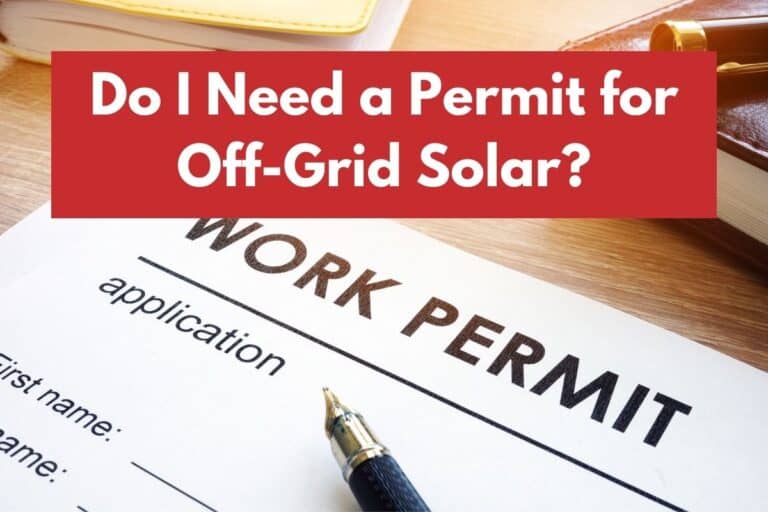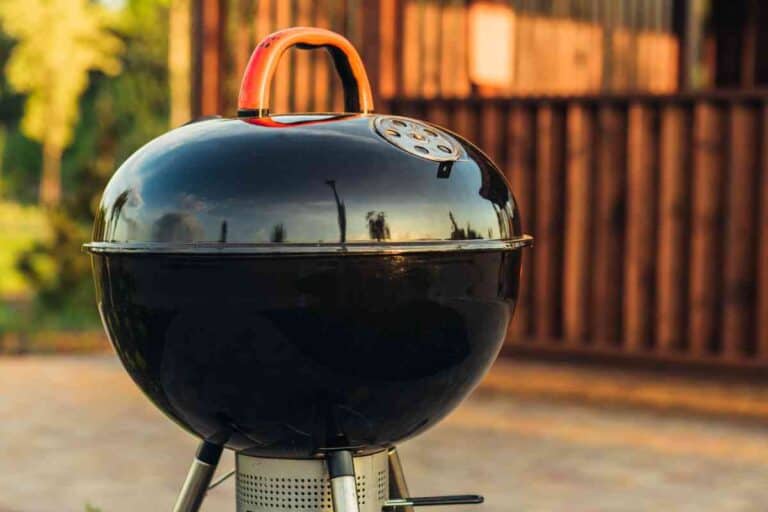Choosing the Right Off-Grid Generator | What You Need to Know
If you’ve been hunting for the best off-grid generator and have found yourself swimming in so many options that it’s difficult to pick just one, you’ve come to the right place.
In this quick guide, we cover all the basics you need to know about choosing the right off-grid generator for your needs – really breaking things down to the core essentials so that you invest in a quality piece of hardware you know you will be able to rely on.
Throughout this guide, we will talk about the importance of considering your power needs and making sure that the generator you select can handle those (and then some).
After all, there’s not much reason to invest in a generator if you won’t be able to run all of the things you are hoping to off of it in the first place. And on the other hand, there is not much point in buying a large and expensive generator if your power needs are limited to a few power tools or lighting up your cabin.
We are also going to consider the different you’ll options that generators run off of, running through the pros and cons of each fuel source so that you have a better feel for which one might be right for you.
Some people will love gas-powered generators, others are going to want to use propane, others still might be interested in diesel – and then, of course, you have solar-powered and hybrid-powered generators as well.
Lastly, we really drill into how you have to outline your specific needs and parameters before you start the hunt for a new generator.
You’ll need to know how much money you have available to invest in this hardware, how much space you have to accommodate your new set up, how you’ll install and run your generator, and a myriad of other things that need to be thought out before you pull the trigger on this purchase.
Consider Your Power Needs
Above all else (aside from budget, maybe), you need to consider how much power your generator must produce.
There’s a world of difference between a generator that can comfortably run a couple of strings of lights, and maybe a fan or two, and a generator that can run an entire off-grid homestead with no difficulty whatsoever – with a ton of different options that sit in between those two extremes, too.
Backup or Main Power?
Consider how you anticipate using this generator on a day-to-day basis.
Are you looking for something that will provide backup power – perhaps in combination with a solar or passive power generation system?
If that’s the case, you don’t necessarily need something that’s pumping out 10,000 W or more regularly – something that’s going to really cruise through fuel faster than you’d expect, too.
Are you looking for a generator that’s going to provide constant power to your off-grid home, running major appliances throughout the day (including things like your refrigerator/freezer)?
If so, you likely will need a generator that can put out 10,000 watts or more without skipping a beat, and you’ll need plenty of fuel as well.
Know Your Needs
To get a real handle on your power needs, break down everything you are hoping to run off your new generator.
1. Start by listing the critical appliances and electronics; you must be able to power, especially those that need to run on a regular or continuous basis.
2. List all of the “niceties” you would also like your generator to handle on a sporadic or semi-regular basis. We are talking about climate control systems, fans, outdoor and security lighting, etc.
3. Jump online and find out how much power (in wattage) those kinds of electronic systems will consume on average. Here is a great calculator. If you are unsure how much power some of your appliances consume, this table will help you get some accurate-enough estimates.
4) Add all of those numbers together, and you’ll know how much energy your generator needs to be able to produce at a bare minimum. But be aware that those are daily averages, and you should consider peak use.
Peak use
The calculated average should be sufficient to cover farmost of your daily activities, as some electronics will be off while you use others, more power-intensive products. But you should still consider what would be the implications if, say, your oven is running, while your spouse is editing video on a power-hungry computer, and you are running a welder in the workshop.
Reserve power
It’s also a good idea to leave at around 20% watts in reserve on top of your specific needs. This gives you room to add other electronics to your off-grid setup without worrying about your generator. But perhaps, more importantly, it also helps your generator to run a lot smoother, not having to operate at 100% output all the time.
Generator Output Standards
Small camping style generators typically produce between 1000 and 3000 Watts. Larger Jobsite style or emergency style generators are often capable of putting out between 5000 and 8000 Watts. “Whole-house” generators can output 10,000 Watts and up.
Gas vs Propane vs Diesel Generator
Another big piece of the puzzle that you’ll want to get right when you purchase a new generator is choosing the right fuel source for your generator needs.
Many people go shopping for a generator, believing that fuel sources are pretty universal across the board and that there’s no real difference in one fuel source or another.
Nothing could be further from the truth.
Different fuel sources have significant advantages and disadvantages compared to one another, especially regarding the overall price, availability, and how they need to be stored or maintained.
Of all the different fuel options you could pick and choose from, most off-grid generator systems run on gasoline, propane, or diesel.
Gasoline Generators
Gasoline is easily the most accessible of all the fuel sources, suitable for most generators – as long as they are pumping out less than 150 kWh (150,000 Watts) of power, anyway. And is universally regarded as the most popular fuel source for residential-style generators today.
The good
You can get gasoline at any gas station, and prices are relatively low, too. The fueling process for a gas-powered generator is straightforward as well.
The Bad
On the flip side, gasoline has a (comparatively) limited shelf life of just 12 months. Any longer than that – without long-term storage treatments – your gas will go bad. Secondly, gasoline is highly flammable and will always pose a safety risk no matter how you choose to store it.
In addition, demand for gas always increases in emergencies (when you are most likely to need extra fuel), and you’ll have to anticipate that as well.
Propane Generators
Propane-powered generators are becoming more and more popular with off-grid homesteaders, though there are still fewer options available compared to gasoline or diesel-powered units.
The good
Propane generators put out a lot less noise compared to their diesel and gas-powered competitors. They also burn a lot cleaner and have lower emissions than the other two as well.
It’s also nice to know that propane has a limitless shelf life, super easy to store in those little propane tanks, and is generally pretty easy to get a hold of and affordable.
The bad
Propane generators are notorious for having a complicated fuel system that you have to master if you’re going to go this direction. You also need to be aware of any leaks and the dangers involved.
Propane bottles (especially smaller ones designed with grills in mind) are going to accumulate pretty quickly if you’re living off the grid, and you’ll have to drive them into town to have them topped up and refill regularly.
The overall installation and expense of setting up a propane-powered generator can be a bit of a nightmare, too. At least if you are looking for a larger system.
Propane generators have a shorter lifetime compared to some of the more established technologies, with people often reporting that they have to replace their generator every 5 to 10 years. Compared to the 10, 15, 20 years of life you can usually get out of the more traditional options.
Diesel Generators
Lastly, you have diesel fuel power generators – a bit of a happy medium between gasoline and propane-powered units.
The good
Diesel fuel generators are designed with long-term operation in mind, often lasting 20 years or longer with very little maintenance and cleaning needed to keep them running like a top.
Diesel is also the least flammable of all the major fuel sources, and you don’t need to worry about flareups with diesel the way you do with other fuels.
Diesel fuel is often just as accessible (sometimes even less expensive) as gasoline, but it’s a lot more stable and lasts a lot longer when you store it.
The bad
Unfortunately, diesel generators are quite noisy compared to all other options – and diesel doesn’t cooperate all that well when temperatures approach freezing.
If you’re going to be living off the grid in colder weather all year round, you’ll either need to heat the generator, have a backup plan, or use dual source/hybrid generators.
Other options
Hybrid generators combine multiple fuel sources, usually a gasoline or diesel option paired with natural gas or propane – or any of the above combined with solar (something we dig a little deeper into in just a moment).
Natural gas generators are also available, but they aren’t all that useful in off-grid situations. The infrastructure necessary to set up a natural gas generator isn’t something you’re likely to come across when you are off the beaten path and away from that traditional infrastructure, after all.
Besides, using natural gas for electricity sort-of defeats the purpose of living off-the-grid.
Hydrogen generators are still relatively new, somewhat unreliable, and have fuel sources that can be finicky to deal with.
Most people will be better off sticking to one of the “Big Three” – gasoline, propane, or diesel.
What About Solar Generators for Off-Grid Living?
Please make no mistake about it; solar technology is a lot more efficient and affordable today than ever.
Not only are the solar cells themselves a lot better these days, but the battery technology used to store this electricity from the sun has improved significantly as well.
Using only solar panels makes you very dependent on whether the sun is shining. But a solar generator (essentially a big battery) allows you to run appliances during the dark hours as well. Besides, by drawing power from a solar generator, the occasional peak consumption can exceed the capacity of your solar panels.
The power-independence you’ll get by using a passive solar system to run your solar generator is unlike anything else you’ll find. This is a true “set it and forget it” kind of passive energy system that even gasoline, propane, and diesel fuels can’t provide.
Besides that, aside from regular upkeep and maintenance costs, once you buy your new solar system, you’re pretty much done with the out-of-pocket expenses.
That can be a game changer.
Solar is Not Perfect
However, solar generators have a much higher initial cost than any of the other options highlighted above.
You can expect to spend at least a few thousand dollars more on a quality generator and solar array system than even the most expensive traditional fuel-powered generator platform of similar output – and sometimes a lot more than that.
On top of that, even a full-sized solar system can’t provide the “raw horsepower” you might need to run all of your appliances and electronics. There will be days where the sun doesn’t shine, where you’re not able to capture as much energy as you had hoped, and where your batteries deplete a lot faster than you expected.
It’s not a bad idea to plan for solar or to combine solar with your traditional fuel generator in a hybrid system. But unless you don’t mind adapting your lifestyle to those dark winters and cloudy days, it’s a little risky to try and set up your off-grid homestead with solar alone.
Unless, of course, you are willing to spend a lot of money on solar panels and large stationary energy storage devices such as the Tesla Powerwall or similar alternatives.
Best Generators For Off-Grid Living
While buying a generator depends on your needs (and wants), some are known for being of high quality. Below are generators that I consider a good combination of price and quality within their respective classes.
Recommended Compact Generator: WEN 56203i Super Quiet 2000-Watt Inverter Generator

Weighing just 39 pounds, this small 79cc inverter generator is perfect for trips to the cabin.
At 2000 surge wattage and 1700 running wattage, it will power most tools and appliances that you can bring on your trip.
As the WEN 56203i is an inverter generator, it runs very quietly at only 51db, which is less than normal speech (60db). And it is very energy efficient, which means you don’t need to bring as much gas with you.
Recommended medium power output Generator: Westinghouse WGen7500
This is a very powerful and high-quality generator at an affordable price.
Outputting 7500 running Watts and 9500 peak Watts, Remote Start, and up to 11 hours of run time on one tank, this is perfect for remote tool use and a backup home generator.
If 7500 Watts is more than you need, consider the Westinghouse 5302 WGen5300s, which generates 5500 running Watts & 6600 peak Watts at a lower purchase price.
Recommended whole-house generator: DuroMax XP12000EH

The DuroMax XP1* series are known for their reliability and affordability. This XP1200EH outputs 9,500 running Watts and 12,000 peak Watts, sufficient to fully power most households.
This model’s significant benefit is dual-fuel technology, which allows it to run on both gasoline and propane. This provides a lot of flexibility in terms of running costs and fuel storage.
Weighing in at 224, this is a heavy unit, but with the included handle kit and solid tires, it can be easily moved around on your property.
Recommended portable solar generator: Goal Zero Yeti 1400

The Yeti 1400 is one of the most powerful solar generators on the market. While it won’t power a house full of appliances, it will certainly meet most of your cabin or camping needs. Even a minimalist off-grid household could get by with just the Yeti 1400.
Rated at 132 amp-hours, it can power a fridge for a day or keep a laptop, a few phones, and a LED lights running for days.
The best thing is that this is a quiet power source free of fumes. As it can be charged from solar panels and a traditional generator, this is a great way to keep your electrical products running during the night.
Check out this great demonstration:
In Summary, the Perfect Generator Depends on Your Needs
The perfect generator is going to “reveal itself” only after you have thoroughly considered all of the key considerations highlighted above.
You’ll need to know your power demands before you start your search, just as you need to know what your budget is, how much space you have available for your new generator, and how you’ll install and maintain the system, too.
You’ll need to think about fuel sources, how you’ll store your fuel safely, and how you’ll source your fuel as well. It’s not a bad idea to go with a hybrid option if the budget and space available allow, and it’s never a bad idea to consider how solar generators might fit your needs and your long-term power costs.






